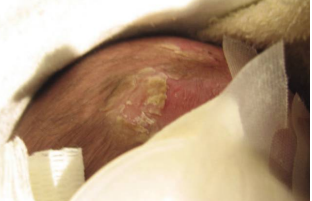Alberta’s new sexually transmitted infections report shows an increase in both HIV and congenital syphilis.

That’s compared to 30.8 cases per 100,000 in 2018 — which is nearly a six-fold increase.
Chlamydia has gone up by 19 per cent compared to 2021 and HIV is up 17 per cent.
Dr. Ameeta Singh, an infectious disease specialist at the University of Alberta, called the numbers “unacceptable.”
“The thing that struck me the most was the astonishing rise in the number of cases of congenital syphilis. The number of cases of congenital syphilis – that’s babies born with syphilis – rose almost six-fold from 2018 to 2022.
“This is a shocking number to experience in Canada today. Our expected number of cases should be zero. So to see even one baby born with congenital syphilis is frankly not acceptable.”

Get weekly health news
Singh said part of the problem can be linked to the rise in addictions to drugs like crystal meth.
“Edmonton actually had some of the highest rates of methamphetamine in wastewater of any city in Canada, so we know there’s very high use of that drug here. That drug not only stimulates sex drive, but it impairs peoples behaviour and their ability to make good decisions with their sexual behavior,” said Singh.
“Consider using condoms. Consider drinking less or using fewer substances and last but not least get tested.
“If you may have done something you weren’t intending to do or even if you were intending to — get tested after please. We’ve seen a number of very unusual presentations of syphilis.”

In a statement to Global News, Alberta Health spokesperson Chris Bourdeau said the province is monitoring the rise in STIs, which is seeing a global resurgence.
He said the reasons behind the rise aren’t fully known, but it’s likely a variety of factors including “a decrease in public perception of risk, individuals not being diagnosed in a timely manner, dating apps becoming more popular and individuals feeling less comfortable accessing health services during the pandemic.”
Bourdeau said “we continue to make targeted investments to prevent infections and to provide wrap-around supports for people living with these infections.”
Singh said she’s concerned about the rise of cases of heterosexual syphilis in the Prairie provinces, Northwest Territories and Nunavut.
“Any time that women are at risk of becoming infected that means there is the potential for babies to be born with congenital syphilis,” explained Singh.
“About two-thirds of the women self identify as Indigenous. Many of those women are affected by other social determinants of health, such as housing instability, poverty, addictions. It also means with the historical events that have occurred many women are not trustful of our health-care system and don’t seek health care.”
She said syphilis testing is a routine part of prenatal care.
“The onus is on us from public health and public health services to try to figure out how we can work with communities and with our Indigenous partners to reach women and offer testing in a way that makes it feel safe for them.”
The latest STI statistics arrived as the 2023 Calgary Stampede kicked off, prompting Alberta Health Services to encourage safer sex practices during the 10 days of “increased socializing.”
AHS encourages people to:
- Discuss STI prevention methods, STI history and testing results
- Use barriers methods including condoms, internal condoms or dental dams
- Get tested for STIs regularly (Call 811 or visit AHS – Sexual & Reproductive Health for clinic information)
- Get immunized against hepatitis A, hepatitis B and HPV

Comments
Want to discuss? Please read our Commenting Policy first.